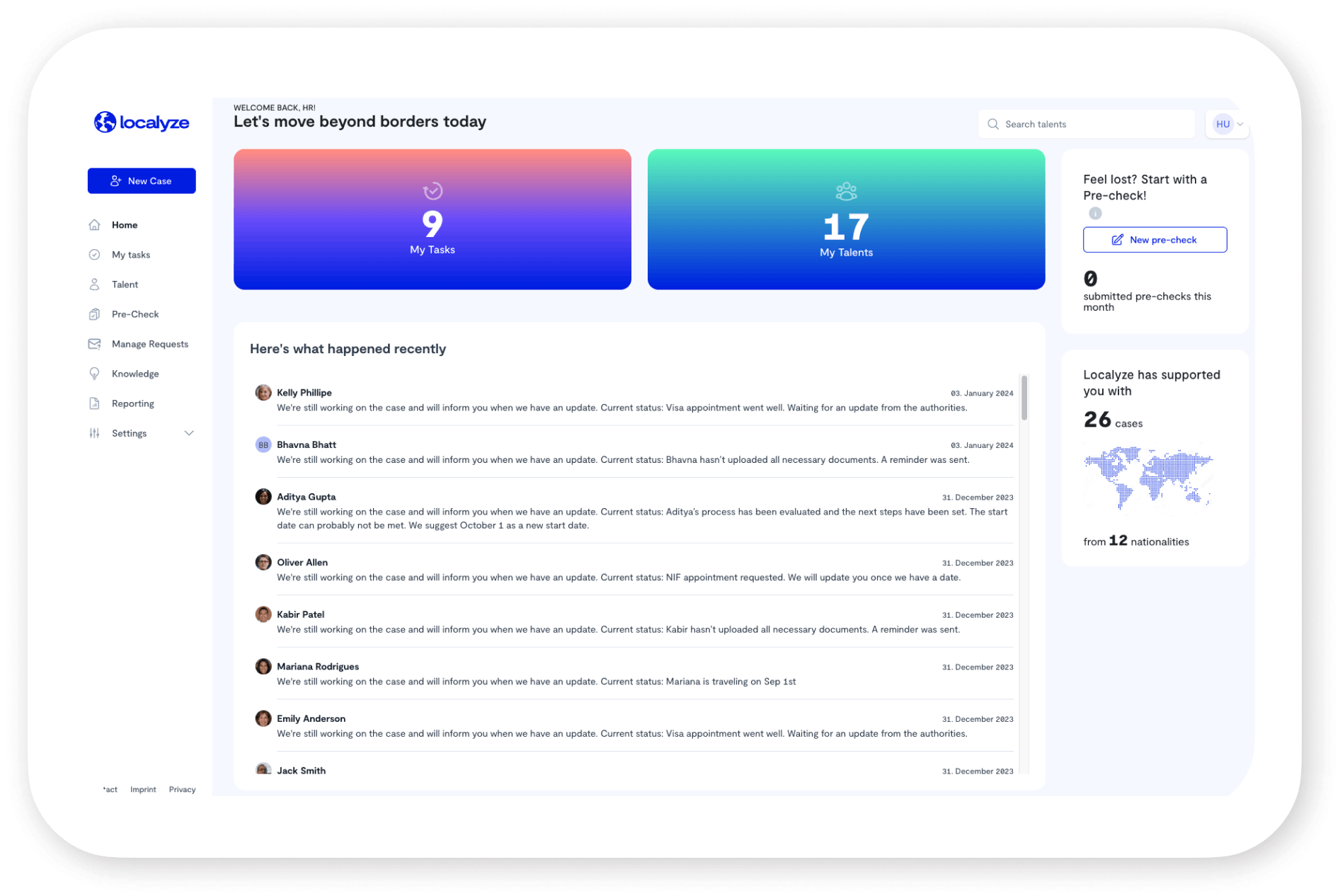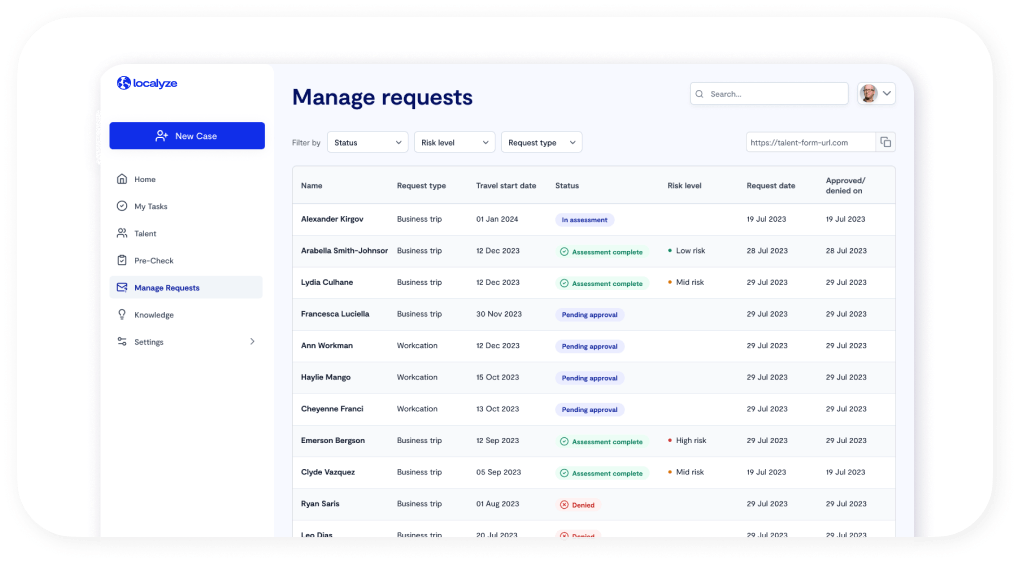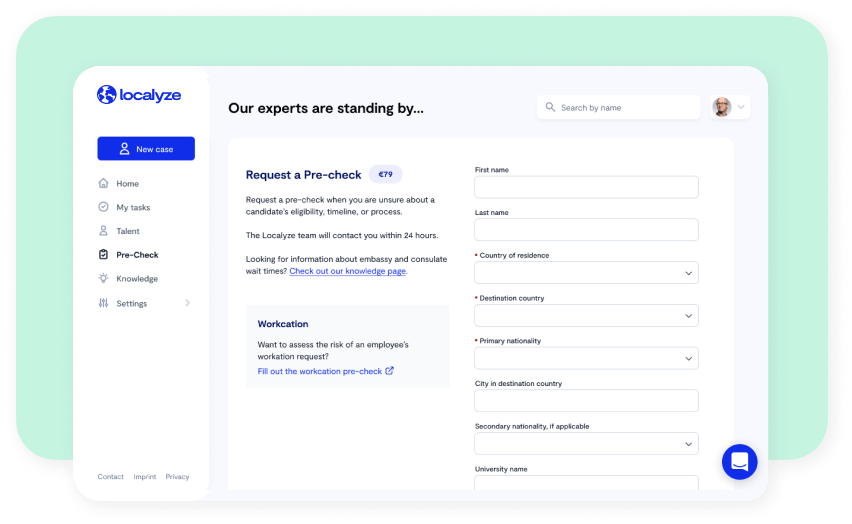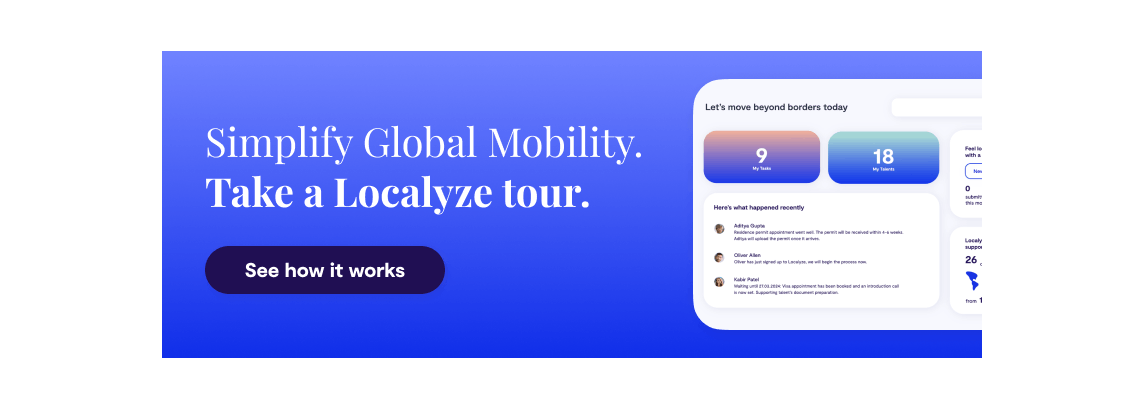The business world is rapidly evolving and employees at all levels can now benefit from cross-border mobility. Our co-founder and CEO Hanna Marie Asmussen discusses in a Q&A with Raconteur how living and working abroad is no longer a luxury for senior management and talent — but a critical necessity.
Here are some key takeaways about employee mobility and why it matters to HR departments across various industries.
Latest global mobility trends
In the early days of global mobility, large organizations primarily sent senior managers to international destinations, usually to open a new office in a new market. However, this process was expensive, costing between $50,000 and $100,000 per executive.
Things have changed in the last five to ten years. Rising demand for international talent, especially in tech and engineering, has led to companies relocating employees of all levels abroad, either alone or with their families. Another recent trend is an increase in employees wanting to work abroad, especially millennials and Gen Zers. The number of digital nomads—people who work online in a location of their choice—has also risen across multiple industries, with their three favorite destinations being the USA, Spain, and Bangkok, Thailand.
"We've seen a significant increase in demand for temporary transfers, special assignments, and workations," says Hanna.
The Localyze platform makes this all possible, allowing HR teams to manage every aspect of employee immigration and relocation (e.g. visas and work permits) and help employees settle in new locations without the need for expensive lawyers.

The rise of workations
While some companies are pushing employees to return to the office after the COVID-19 pandemic, others offer a compromise between remote work and traditional office setups. Workations allow employees to work from destinations where they would normally holiday, providing new travel and personal growth opportunities.
"It's just another way of providing people with more flexibility," Hanna says. "This helps to make employers more competitive in the war for talent, especially in tech."
Workations and other relocation models can be expensive for employers. Localyze allows HR professionals to take a holistic and strategic approach to employee mobility by streamlining work abroad processes without the compliance risks. Companies now have full visibility into the employee mobility lifecycle.
Further reading: Comprehensive workations compliance checklist

Benefits and challenges of global mobility
Research shows that happy employees perform better at work, so allowing them to travel to new locations can benefit companies in all sectors. Global mobility also gives employees access to a larger talent pool. Even startups can hire international workers with specific skill sets, helping them grow their businesses.
That said, global mobility still presents challenges. Companies that employ international workers must comply with various laws and regulations, including those related to taxes.
"Even if there is no office in the country, the government may behave, for tax purposes, as if a permanent legal entity exists," says Hanna. "This means you, as their employer, may be obliged to pay corporation tax."
Localyze supports HR departments that want to overcome these obstacles. Our team of immigration and relocation experts guides you through the process, making it easier to abide by the laws in different countries.

Boost business with cross-border employee mobility
Despite challenges, relocations provide multiple benefits for both employees and employers. The Localyze platform and our expert Case Managers handle visa logistics, work-abroad compliance, and much more, making it an invaluable tool for HR teams everywhere. Get started with Localyze today by booking a demo.


